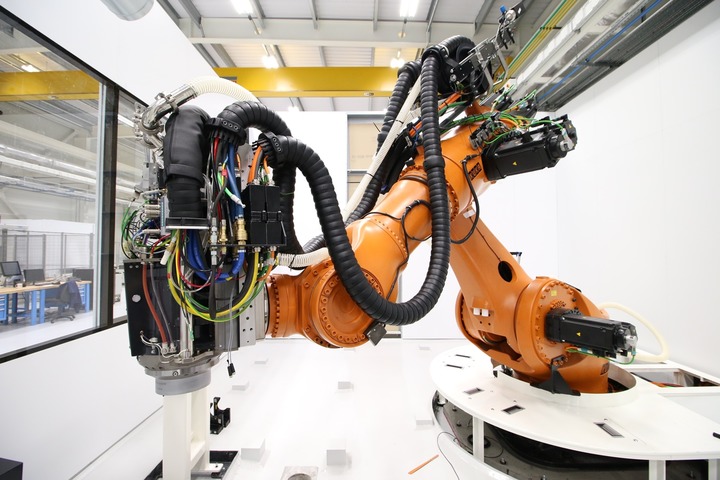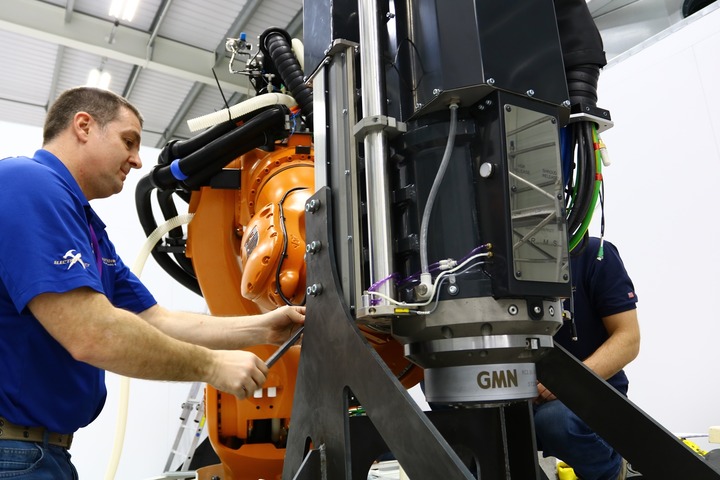AMRC project targets a step change in the capabilities of robots used in aerospace
08 June 2017Work has completed on a £850,000 project to give the UK aerospace sector a unique capability for high accuracy robotic machining.
The Flexible Robotic Machining in High Accuracy Applications project was launched by the University of Sheffield Advanced Manufacturing Research Centre (AMRC) with Boeing, with backing from the Aerospace Technology Institute (ATI) to develop an Accurate Robotic Milling System.
The AMRC identified the need for the project after carrying out three years of robot machining research for aerospace original equipment manufacturers (OEMs) and high-end automotive manufacturers.
“We believe there is great potential to achieve a step change in high accuracy robotic machining on the back of our previous research and our understanding of the fundamental mechanics,” says Ben Morgan, who heads the AMRC’s Integrated Manufacturing Group at Factory 2050.
The AMRC is combining an existing accurate robotic solution with world-leading expertise in CNC machine tool dynamics in a bid to enhance the robot’s accuracy and overcome its lack of stiffness and dynamic stability.
The organisation has had the latest accurate Renishaw rotary encoders incorporated into its KUKA ‘Titan’ robot and linked to the robot’s Siemens 840D controller.
The technology has been developed by Electroimpact, one of the world’s leading aerospace automation companies, with UK offices in Deeside; which has experience in creating accurate robots and has sold systems for drilling in aerospace.
“This will create the most accurate large volume machining robot in the world,” say Morgan.
“The modifications that have been carried out will ensure the robot will be at the heart of our automation research in collaboration with UK aerospace OEMs and Tier One companies.
“The project has the potential to develop accurate and stiff robotic machining for both metallic and composite structures, offering manufacturers increased flexibility and greater efficiency, when it comes to producing higher quality components.
“It would reduce the need for expensive specialised multi-axis machine tools and would have applications in both current and future commercial aircraft programmes as well as in a wide range of other high value UK industries including the defence, automotive and marine sectors.”


